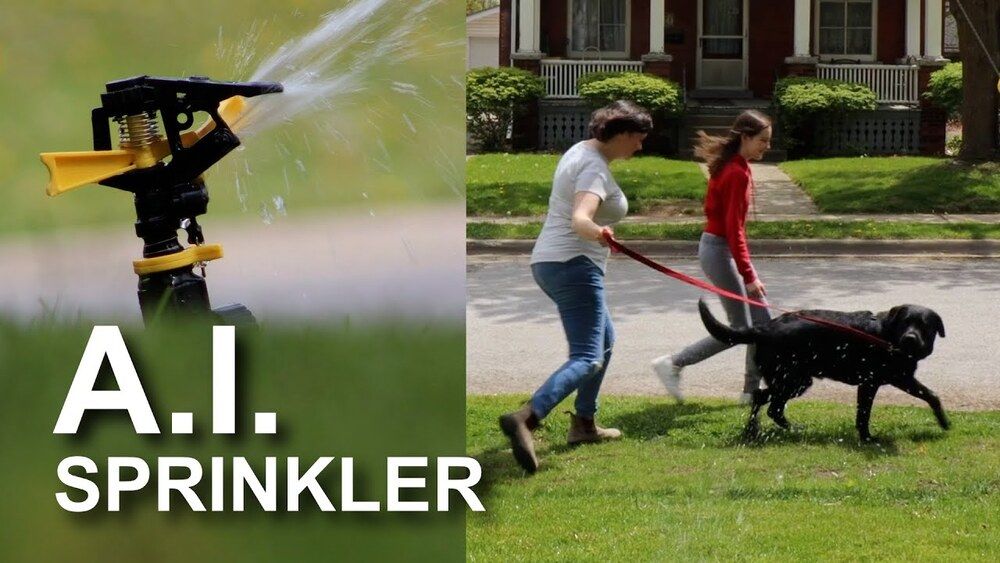Researchers in a small but growing field search for neural correlates of religiosity and spirituality.
Page 5132
Jul 14, 2021
Astronomers train AI to reveal the true shape of galaxies
Posted by Genevieve Klien in categories: robotics/AI, space
A new artificial intelligence method removes the effect of gravity on cosmic images, showing the real shapes of distant galaxies.
Jul 14, 2021
As Europe hopes to double its share of global chip production, Intel comes along with $20bn, plans for fabs
Posted by Genevieve Klien in category: computing
Intel wants in on this, and hopes to expand its presence on the continent. It hopes to build in Europe at least one factory for manufacturing and another for advanced packaging, Greg Slater, VP of global regulatory affairs, told the Financial Times over the weekend. France, Germany, Belgium, and the Netherlands are being considered as hosts for these facilities, and Intel is expected to name locations by the end of the year.
Chipzilla is, we’re told, prepared to blow as much as $20bn on these factories over the next decade, with an eye on building up to eight fabs on a 1000-acre site somewhere with the necessary infrastructure around it. Intel teased it could spend up to $100bn during the lifetime of these Euro plants.
“We are well placed to make this an ecosystem-wide project, not just a couple of isolated paths in one member state,” Slater said. “We do believe that this is a project that will benefit Europe at large.”
Jul 14, 2021
Genius AI-Powered Device Keeps Intruders Off your Lawn
Posted by Genevieve Klien in category: robotics/AI

Artificial intelligence (AI) seems to power all sorts of devices nowadays. Why not a lawn mower, too?
Jul 14, 2021
Upcoming Moon ‘wobble’ could cause mass flooding across Earth, scientists warn
Posted by Quinn Sena in category: space
A NASA study has revealed how a ‘wobble’ in the Moon’s orbit could cause devastating flooding in the 2030s.
Research led by the US space agency predicts cities along the country’s coast could see three or four times as many high-tide flood days annually for a decade.
The Moon’s gravitational pull impacts tidal forces on Earth.
Jul 14, 2021
Jeff Bezos wants floating colonies in space with weather like Maui all year long — here’s what he thinks they’ll look like
Posted by Quinn Sena in category: space
Circa 2019
Bezos has discussed his hope of building O’Neill colonies, spinning cylinders in space that would replicate gravity and sustain human life.
Jul 14, 2021
Bad Dog? Research Suggests Superbug Link To Man’s Best Friend
Posted by Jason Blain in categories: biotech/medical, food, government, health
“The trend for feeding dogs raw food may be fuelling the spread of antibiotic resistant-bacteria”, the researchers said in a press release for their study, to be presented at the European Congress of Clinical Microbiology & Infectious Diseases.
Separate research to be presented at the same conference found resistance to a last-resort antibiotic may be passing between pet dogs and their owners.
Antibiotic-resistant “superbugs” — which the World Health Organization calls one of the top global threats to public health — usually conjure images of hospital settings.
Continue reading “Bad Dog? Research Suggests Superbug Link To Man’s Best Friend” »
Jul 14, 2021
UK May Ban Boiling Lobsters Alive Under “Sentient Being” Law, So Can They Really Feel Pain?
Posted by Quinn Sena in categories: ethics, government, law, space
Boiling lobsters alive may be banned under a new law in the UK designed to protect the welfare rights of animals considered sentient beings. So, are lobsters sentient, do they feel pain, and what does science have to say about the moral quagmire of crustacean agony and cooking pots?
Back in May 2021, the UK government introduced a bill to formally recognize animals as sentient beings. Among the many facets of the bill, it aimed to limit the import of products from trophy hunting, push for fairer space requirements for farm animals, and stop people from owning primates as pets.
However, the bill only covered animals with a backbone and didn’t include any protections for non-vertebrates, which includes octopuses, squid, insects, and crustaceans. The Times reports that ministers are now preparing to back an amendment to the House of Lords, the upper house of the UK Parliament, to extend the legislation to shellfish and cephalopod mollusks. As per the report, this is likely to involve an outright ban on boiling lobsters alive.
Jul 14, 2021
Neuroscientists assess the impact of a short-term musical training on implicit emotion regulation
Posted by Saúl Morales Rodriguéz in categories: biotech/medical, media & arts, neuroscience
Emotion regulation is an essential aspect of mental health and wellbeing. In fact, past studies have found associations between poor emotion regulation and several psychiatric disorders, including bipolar disorder, borderline personality disorder and complex post-traumatic stress disorder (PTSD).
During their everyday life, humans can regulate their negative emotions in different ways, most of which do not require any conscious cognitive engagement. For instance, they might take a bath, step outside for fresh air or listen to music.
Researchers at Radboud University Nijmegen in The Netherlands, the Norwegian University of Science and Technology (NTNU), and University Hospital Aachen, Germany have recently carried out a study aimed at investigating the effects of a short-term musical training on implicit emotion regulation. Their paper, published in BMC Neuroscience, specifically examined whether musical training helped people to reduce the negative emotions elicited by unpleasant or disgusting odors.
Jul 14, 2021
“Nuclear Batteries” Offer a New Approach to Carbon-Free Energy
Posted by Genevieve Klien in categories: climatology, military, nuclear energy, robotics/AI, sustainability
Jacopo Buongiorno and others say factory-built microreactors trucked to usage sites could be a safe, efficient option for decarbonizing electricity systems.
We may be on the brink of a new paradigm for nuclear power, a group of nuclear specialists suggested recently in The Bridge, the journal of the National Academy of Engineering. Much as large, expensive, and centralized computers gave way to the widely distributed PCs of today, a new generation of relatively tiny and inexpensive factory-built reactors, designed for autonomous plug-and-play operation similar to plugging in an oversized battery, is on the horizon, they say.
These proposed systems could provide heat for industrial processes or electricity for a military base or a neighborhood, run unattended for five to 10 years, and then be trucked back to the factory for refurbishment. The authors — Jacopo Buongiorno, MIT’s TEPCO Professor of Nuclear Science and Engineering; Robert Frida, a founder of GenH; Steven Aumeier of the Idaho National Laboratory; and Kevin Chilton, retired commander of the U.S. Strategic Command — have dubbed these small power plants “nuclear batteries.” Because of their simplicity of operation, they could play a significant role in decarbonizing the world’s electricity systems to avert catastrophic climate change, the researchers say. MIT News asked Buongiorno to describe his group’s proposal.

















